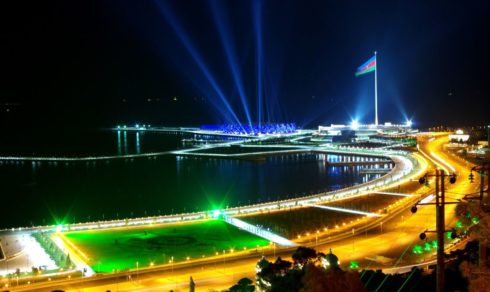Written by Alex Gorka; Originally appeared on strategic-culture.org
The prospects for establishing some kind of cooperation with the Collective Security Treaty Organization (CSTO) have recently entered the public discourse in Azerbaijan. The success of the Caspian Convention has triggered these discussions about the CSTO-Azerbaijani relationship. The haqqin.az website is serving as a platform for the ongoing debate, suggesting that membership in that organization should not be ruled out, given the circumstances.
According to Ali Husseynli, the chairman of the Azerbaijani parliament’s Legal and State-Building Committee, “…in the new geopolitical conditions it is possible to consider Azerbaijan’s participation in the CSTO,” adding, “I do not see any serious threats to our country as a result of its participation in the CSTO. In addition, it is possible to begin with the status of an observer state in this organization.” Commonspace.eu describes him as a serious politician, who is close to the presidential administration and is known for his role in offering new ideas for public discussion. If this is true, does it mean the Azerbaijani leadership is pondering the possibility of entry into the bloc? Why not? The Collective Treaty is an organization that welcomes new members. After all, Baku was a full-fledged member of the CSTO from 1993 to 1999.
If that event occurs, 70% of the South Caucasus will automatically fall within the domain of the CSTO. The organization would have a common border with Iran and gain access to the Indian Ocean.
Membership would pave the way for the acquisition of contemporary weapons systems from Russia, Belarus, and other member states at a considerable discount, or at “internal prices,” which are much lower than the rates charged internationally
Joining the CSTO is a logical step for Azerbaijan, as Russia considers this country to be a strategic ally. The two nations share a common border. Their common status as signatories to the recent Caspian Convention brings them even closer. Diasporas are also a factor dictating a need for an enhanced partnership. Baku enjoys a special relationship with Ankara. So do Moscow and Astana, the largest CSTO member states.
Everything is connected. Baku can play an important part in the implementation of China’s Belt and Road Initiative (BRI), as the other members of the CSTO do. Azerbaijani-Iranian transport projects could become part of the initiative. The Shanghai Cooperation Organization (SCO) is a natural partner to the BRI, and the CSTO and SCO cooperate closely. Russia, Kazakhstan, Kyrgyzstan, and Tajikistan, all parties to the CSTO, also enjoy membership in the SCO. The two organizations share a document – a Memorandum of Understanding signed in Dushanbe in 2007 – that defines the guidelines on bilateral cooperation.
German Chancellor Angela Merkel visited Azerbaijan on Aug.25. Those talks demonstrated that “human-rights issues” still cloud Azerbaijan’s relations with the West. That visitor pointedly met with opposition figures, including investigative journalist Khadija Ismayilova, to discuss “corruption and how it undermines peace, democracy, and security in Azerbaijan.” The chancellor noted, “We did not find common ground on all issues. But I argued that a strong civil society must be part of an open, secular society and made clear that we would like to see this strong civil society.” Nothing like this stands in the way of developing Baku’s relations with the CSTO member states.
Baku enjoys a solid, neighborly relationship with Iran and has lucrative economic projects either in the works or already up and running. The US campaign against Iran could have a negative effect on American-Azerbaijani relations, as Baku could be hit by US sanctions. Any nation can make itself less vulnerable to outside pressure of any kind by diversifying its portfolio of international relationships.
It is true that Azerbaijan is sticking to a policy of neutrality. It has a close relationship with NATO. Although a party to the EU’s Eastern Partnership program, it has refused to sign an association agreement with Brussels. It enjoys a special relationship with Israel while also supporting the idea of an independent Palestinian state.
Baku sees the advantage in preserving as much wiggle room as it can, and this policy is quite understandable. Today, the CSTO is being reformed so as to offer the new options of observer and partner-state status. This is a welcome development that is well timed! One of these statuses would perfectly be attuned to Azerbaijan’s interests.
***
On June 10, 2018, SouthFront released a video analysis entitled “Crisis in Armenia and Balance of Power in South Caucasus“, which was describing how the recent in Armenia would impact the balance of power in the South Caucasus:






